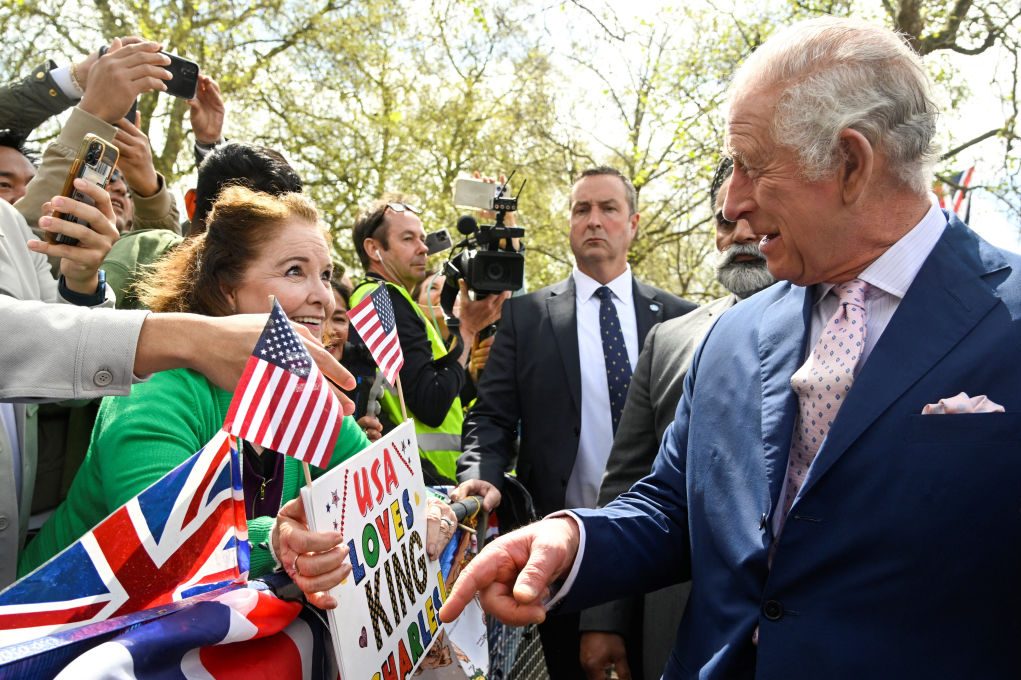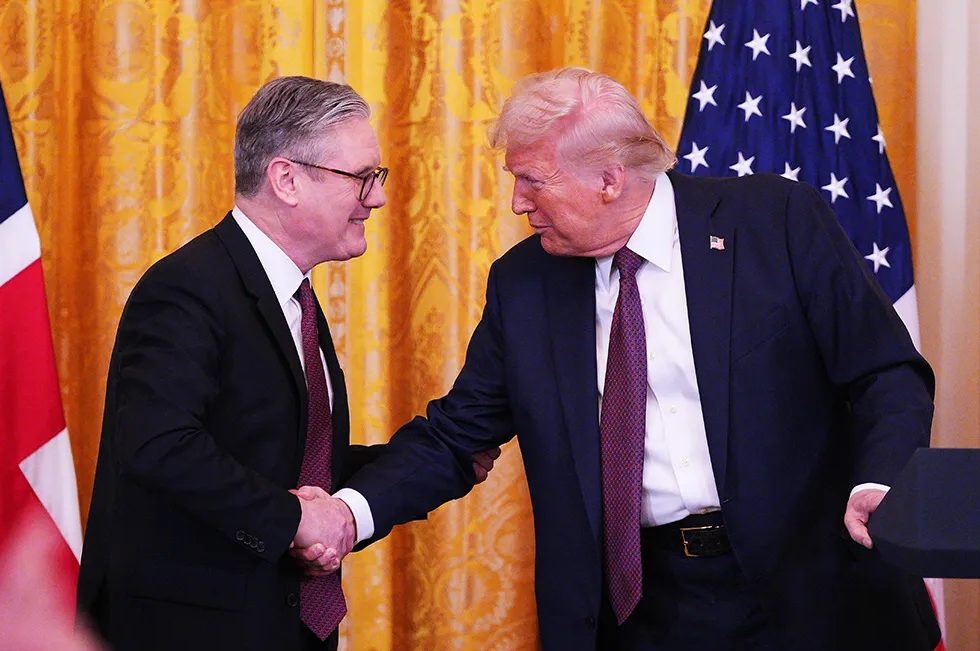I planned my trip from Palm Beach to London almost a year ago. Nothing was going to stop me coming to the UK to celebrate the King’s coronation, the monarchy and the Special Relationship (Britain-hating Biden notwithstanding). I arrived full of goodwill and looking forward to this historic, and truly rare spectacle. Yet I was surprised to find a substantial number of Brits raining on the royal coronation parade.
We Americans chose to fight to establish a republic, but we remain powerfully inspired and influenced by the status and presence of the British monarch
British friends sometimes roll their eyes at American enthusiasm — our sunny optimism and, perhaps, too familiar approach. But hell, can’t we all give a cheer for a man who has patiently waited his turn for over seventy years? Indeed, if you are so nonplussed that you don’t even see his role and institution as something exceptional, then perhaps you need to reassess and count your national blessings.
I was not prepared for the less-than-enthusiastic attitude I have encountered from some people here. Of course, I get the resentment that crowds and annoying tourists like me can cause. What surprises me are the statements of “not my King” and “I can’t be bothered, so I’m heading out of town.” I was also caught off-guard by the number of negative editorials about the coronation — and not just from the usual suspects in the Guardian.
It’s certainly not for me, a foreigner, to tell citizens of a sovereign nation how to feel or act vis à vis their national events and institutions. Allow me, however, simply to outline some points, from the perspective of someone who regrets that his country does not have a great monarchical tradition.
First, as an American who admires monarchy for its ability to inspire, I do sympathize with those worried about the coronation being “slimmed down.” We all have in our minds the magnificent footage of Queen Elizabeth II’s coronation and seem to have adopted it as the gold standard. But it’s worth remembering that it’s always been the case that the incoming monarch has set the flavor and content of their own coronation according to taste and the prevailing times. I would be the first to argue that it would be difficult to top the 1953 ceremony, but we have to recognize that it was almost designed to be an antidote to the austerity of the aftermath of World War Two. Context is everything.
The monarchy has endured, like the British constitution, precisely because it is flexible and adaptable. When William and Mary bought into the settlement arising from the bloodless Glorious Revolution of 1688, and assented to the limitation of their powers in the resulting constitution, that made Britain truly exceptional. What they did had the effect of limiting monarchical power, broadening participation and, ultimately, led to government requiring consent of the people. Their acquiescence shaped the thinking on which American democracy was founded, with the wholesale adoption of the principles and text contained in the English Bill of Rights of 1689. The ideas, documents and legislation that emerged from the reign of William and Mary and the Glorious Revolution shaped the fundamental laws of the North American colonies as much as, if not more than, anything conceived by America’s founders.
We Americans chose to fight to establish a republic, but we remain powerfully inspired and influenced by the status and presence of the British monarch. We are far from alone. As noted by Alec Douglas-Home: “The Queen’s appearances abroad do more in a day to gain goodwill for Britain than all the politicians and diplomats lumped together could achieve in years.” It’s not overly generous to Charles to suggest that he already is, and will continue to be, a compelling ambassador for his nation and its overseas interactions. Though he’s new to the throne, this is a continuation of a role he’s been doing, supporting his beloved mother, for all his life.
Unlike the dangerously divided republic in which I live, the monarchy has blessed Britain with stability, national pride and cohesion. Sovereigns are not simply responsible for representing and uplifting their people, but also for preserving the institution they head. Queen Elizabeth handled this flawlessly. Charles must be given his chance. Every monarch has somehow shaped his or her reign personally. We must trust that Charles, who learned from the best, has the qualities necessary to do what is to the enduring benefit of both country and monarchy. We might not like some of his decisions personally, but through the hereditary system, by definition he is the man for the job and bears not just the authority but the great responsibility of serving.
There will always be shades of enthusiasm, from the avid to the skeptic, about any individual, especially one who has been in the public eye for so long. But if anyone does not personally care for Charles, I would remind them of the two words that should persuade anyone not to ditch the monarchy: “President Blair!”
As an outsider who admires Britain and her constitutional principles and associated institutions, I ask: why not just draw together and be there for Charles? Cheer him on. Support him. Give him the opportunity to earn your trust. He does now embody Britain. He has already given many years of service to country and Commonwealth. He has demonstrated his care and concern. His contract with the British people and his pledge before God to serve should be affirmed and celebrated.
This article was originally published on The Spectator’s UK website.

























